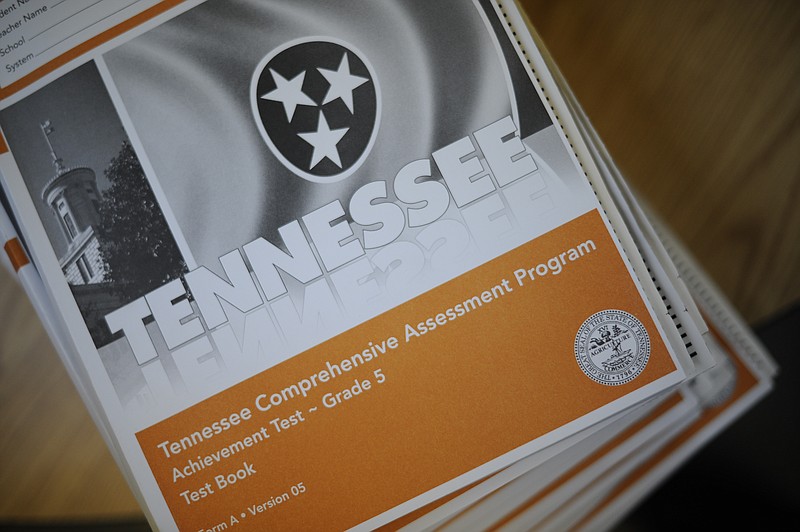NASHVILLE -- More than a dozen education advocacy groups are calling for more transparency from the Tennessee Department of Education after it failed to communicate a change it made in the way a student's test score is calculated.
The Tennessean reports the issue is over "quick scores," the scores educators in grades 3-8 are legally required to incorporate into a student's final grade.
A quick score is generated from a student's Tennessee Comprehensive Assessment Program raw score, or the number of questions a student answered correctly.
In the past, quick scores have been tied specifically to proficiency levels, but the department stopped that practice this year.
Previously, a quick score of 85 meant a student was proficient, but that's not necessarily the case after the department's change.
Education Department spokeswoman Ashley Ball acknowledged in an email that the decision wasn't "widely communicated with districts, and has been a source of confusion for districts and educators."
She said the department plans to hold regional meetings with superintendents, principals and others to answer questions.
The petition by the 13 advocacy groups calls for the availability of test questions and answers within a "reasonable" time after test administration.
It also says the process for determining scores should be clear and that standardized test scores should not be counted as part of a student's final grade or teacher evaluations, which has been a long concern of educators.
"It's imperative that we move toward testing transparency -- access to the questions and answers on the standardized tests -- in order to ensure the tests are reliable and valid assessments of the standards being tested," said Lyn Hoyt, president of Tennesseans Reclaiming Educational Excellence, which is leading the petition effort.
"By adopting these principles and the policies they would necessitate, we can return testing to its rightful place as one of many tools used to improve education, instead of the ultimate measure of student and teacher performance."
